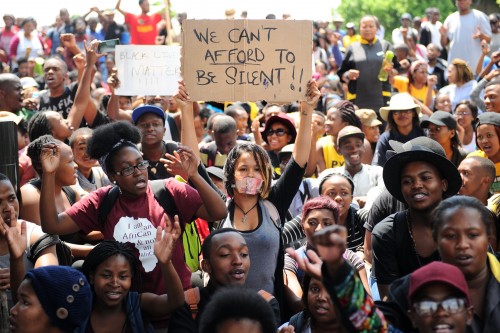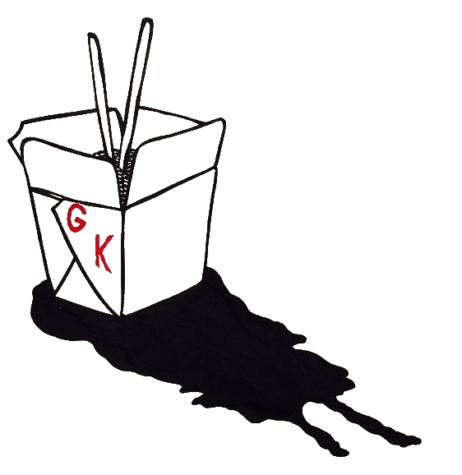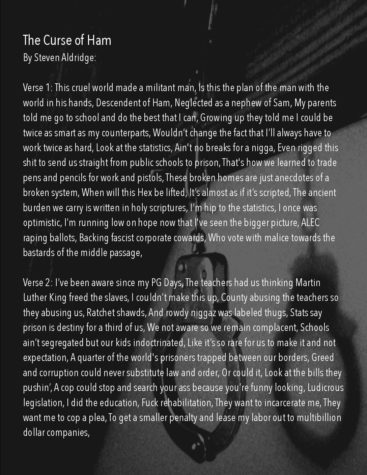Why It’s Hard to be a Teenager in 2017

Source: Moneyweb
December 7, 2017
The teen years are significant because they mark the transition from childhood to adulthood. For a lot of people, this stage of development feels liberating and empowering as many of the legal and parental limitations they grew up with begin to disappear. Examples of this freedom range from being able to get a part time job at fourteen to being able and get your provisional license at sixteen to being allowed to stay out later and get piercings and tattoos. These privileges are great and being excited about receiving them is understandable if that’s where your priorities lie.
Throughout my teenage years, however, I have learned a lot about corruption and injustice and about efforts made to combat it. For me, the hardest part about being a teenager in 2017 is being able to understand the things that are happening in the world and not having the power to do anything about any of them.
It has been more than a year since this country endured its most controversial election in recent history. Teens were affected by the rhetoric used during the Trump campaign just as much as most adults. People I care about were affected by immigration policies the Trump campaign supported and eventually implemented. Unfortunately, all I was able to do about it was express my frustration on social media or during in-class discussions because I was not eligible to vote at the time of the election. Adults who felt as strongly about the election as I did had the option to cast a ballot and, in doing so, actively stand against the propaganda, rhetoric, and platforms supported by the Trump campaign. When I saw the outcome of the election, I felt like those adults — who had real opportunities to oppose injustice– had failed me and my generation.
I recognize that social media amplifies my voice, but even I, Steven Aldridge, am tired of talking.
One subject I’ve been keeping up with throughout my teenage years is the Prison Industrial Complex, a system which involves the privatization of prisons and its connection to mass incarceration. The Prison Industrial Complex is a social justice issue I feel very connected to because it disproportionately affects people of color. It’s frightening to know that, as a black male, I have a thirty-three percent chance of being incarcerated in my lifetime. Growing up in black communities has also allowed me to see the symptoms of this systematic corruption. I can write about these issues and do my best to prevent myself from being jailed but, at seventeen, there isn’t much I can do to actively oppose this problem. I can’t run for congress, lobby, or take part in any of the more powerful ways to impact and end the problems that plague the justice system.
I’ve also wanted to support the communities I’ve been a part of. I’ve gained so much perspective from spending time in communities – like the one at SSFS – where people come from a variety of backgrounds and I encourage diversity and social mobility. I also live in a place where sixty-five percent of the residents are black and spent most of my life in areas that were historically black. I find a lot of value in places where people can relate to my experiences. Over the years, my exposure to these two drastically different settings prompted me to realize that the more diverse places were products of the deterioration of monoethnic areas I grew up around. I’ve also learned that the monoethnic settings I was used to were products of the oppression I hoped to combat one day. For a while, I was torn between wanting to preserve the culture and history of black communities and wanting to encourage and promote diversity. Soon enough, I realized that it didn’t matter. There was nothing I could do to change either of those things. I couldn’t buy property in these communities. I could encourage adults to hold on to their businesses and property, but how often do adults take a teenager’s ideas seriously?
I recognize that social media amplifies my voice, but even I, Steven Aldridge, am tired of talking. Talking leaves people with the choice of listening or not, while action often requires a response of some kind. I’m ready to take action on the issues I feel strongly about. Voting, starting my own business, and running for public office are just a few of the ways I might take action in adulthood. The only thing holding me back now is my age.





Hanke Chen • Dec 14, 2017 at 5:41 pm
I agree with you and you are telling the truth.
In my opinion, there are things you cannot do because you do not know how to do it right at this moment. You cannot expect a 3-year old to take responsibility to vote for our next president.
You are actually on your way. The school here is teach you how to reach your goal. Getting a good grade CAN improve your chance of making your dream come true.
Another reason why adults do not trust children to do things that they cannot handle is because of children’s biological trait. Brains are not fully developed until a certain age.
Even adults cannot make great decisions. For most of people, their religion and ideology are largely depend on geographical locations where they live instead of their own thoughts. Media do the same job. If teachers tell you that Trump is horrible, you’d better do some research to see if the evidences they give you are correct before you believe it. (To find out more about how people do not know how to make basic decisions, check the last Nobel prize of behavioral economics)
Jamshed • Dec 12, 2017 at 8:06 pm
Steven, I partially agree with your assertion that as a teenager you do not really have much power to bring change. As you said, this is the period of “the transition from childhood to adulthood”, when you shape most of your identity and character. At this stage, teenagers start to learn the truth of the cruelty and injustice of the world, as they have been living behind the curtains of reality up to this point. They have to face the problems of everyday life, which varies with each individual. On top of that, you have to study hard and build your resume in order to get into a good university. There is almost no time to enjoy the leisure of life and pursue what you truly want to do. A question arises: ”Who is to blame?” Well, the answer is simple. We spend so much of our time doing something that we do not genuinely enjoy doing, thinking that we might need it in future. While it is true that education and being a well-rounded person is very important, it does not mean that they decide your future. You can always sacrifice the time that you spend on doing something you do not enjoy and follow the path that you truly want to pursue. Obviously, it will not be the same experience for everyone, as all of us have different things at stake. Some of us have to feed their families, study, and work. Sometimes our environment and surrounding prevent us from bringing our dreams to reality. It can be the restrictions put by the family, rules made by the country, and even pressure caused by peers and friends. If you are looking for the guilty, you need only look into a mirror. Almost everyone has a choice to manage how they want to live. The thing that holds us from doing that is the fear of dealing with the price that we have to pay and the fear of failure. However, a few people showed that it is possible to bring change, despite their young age. Teenagers like Ziad Ahmed, Xiuhtezcatl Martinez, and Jazz Jennings publicly addressed the inequalities and injustices that you, Steven, are talking about. Did they face obstacles along their way? Were they judged and criticized by others? Of course, they were. But they continued their road, hoping for the best.
While not many people of our age were able to fight the issues they “hoped to combat one day”, I think almost anyone has the capability of doing it. All you need is to believe in yourself, and follow the path that you think will help you achieve your goal.